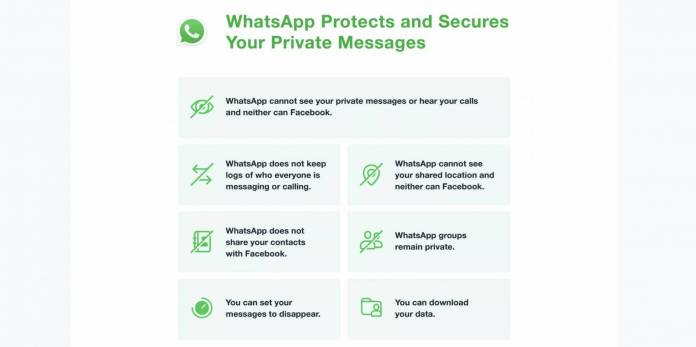
WhatsApp and Facebook should have known that issuing a sort of ultimatum to its users will not be received well. And even though there are a lot of misleading information going around, people are indeed transferring to other messaging platforms as evidenced by the spike of new sign-ups on apps like Telegram and Signal. WhatsApp has now issued an FAQ and even an infographic to explain that the platform still protects and secures your private messages despite the new privacy policy that users must accept.
WhatsApp emphasized that the policy update will not affect the privacy of your messages that you send to your friends or family. They are still supported with end-to-end encryption and cannot be viewed by WhatsApp and its parent company Facebook. What the privacy update is about is changes to how you message businesses on WhatsApp but this in itself is optional. They are also providing more transparency on how they collect and use data for businesses.
An infographic highlights what kind of information is protected from the eyes of WhatsApp and Facebook, like the aforementioned private messages, information about who is messaging or calling you, your shared location, and WhatsApp groups. They also clarified that they do not share your contacts with Facebook and that you can set your messages to disappear and that you can download your own data.
WhatsApp clarified that some businesses will use Facebook’s hosting services to manage WhatsApp chats. So if you message businesses on WhatsApp, they may be able to use the information for their own marketing purposes like targeted ads. But they will be clearly labeled so users are aware of how their data will be used. The FAQ further clarifies some issues but that will probably still not stop users from moving to other messaging apps that they trust.
XDA Developers says that there were still some misleading information on the FAQ, particularly when it comes to shared location access. The infographic says that they “cannot see your shared location and neither can Facebook” but some wording in the new privacy policy are too vague. And while you have the option to turn off location access, the platform is still able to collect your general location information through your IP address and number area code.









